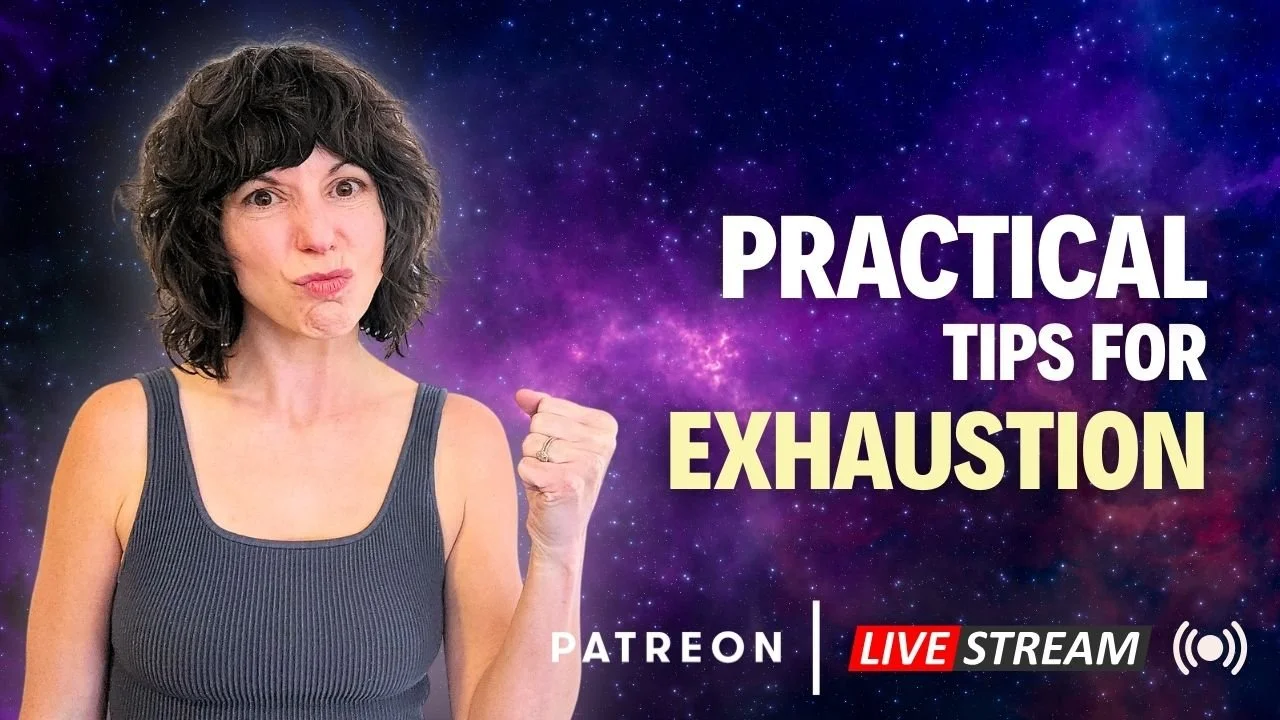Complex Emotions After Cutting Off Family: How Dreams Help You Process
“Why am I still dreaming about them?”
That was the question Amy asked during a recent call. She had gone no contact with her family after years of emotional abuse. The photos were gone. The phone numbers were blocked. Her life was finally quieter. But at night, they still showed up—silent, staring, present in her dreams.
If you’ve gone no contact with a toxic parent or relative, you may know this experience well. You’ve set firm boundaries. You’ve stopped the people pleasing. You’ve started healing. But somehow, your dreams didn’t get the memo.
For many Highly Sensitive People (HSPs) and trauma survivors, this is part of the emotional recovery process. It’s one thing to consciously walk away from dysfunction. It’s another to feel free on a deeper level—especially in the places where logic doesn’t rule, like your subconscious. This is where grief, memory, fear, and emotional residue live. And this is why dreams can continue long after the actual relationship ends.
Understanding Dreams After Going No Contact
When you go no contact, your nervous system doesn't shut off. It keeps working through the emotional wreckage. For HSPs, who tend to feel and process things more deeply, this can show up in dreams with startling intensity. Amy described hers as post-apocalyptic scenes—chaos, war, running for her life. Her abuser always appeared. Sometimes escaping. Sometimes just staring. Always silent.
These dreams aren't just about fear or danger. They’re the brain’s way of reorganizing emotional information. Even when you’ve made clear choices in your waking life, your mind still needs to reconcile what happened. It’s common for mental health work to continue through dreaming, especially when the trauma was prolonged or began in childhood. The dream state becomes a place where your healing story keeps unfolding—sometimes without your permission.
Reframing the Meaning of Recurring Dreams
The content of dreams can be disturbing, but the interpretation doesn’t have to be. Reframing is a powerful tool in mental health recovery. Rather than seeing the dream as a threat, you can start to view it as a reflection of how far you’ve come.
Amy shared a pivotal dream moment: her abuser getting into a car to escape while she stayed behind. She wasn’t begging to join him. She wasn’t even trying to talk. She thought to herself, “I’m not getting in that car with you. I’d rather die here.” That’s not powerlessness. That’s clarity. That’s a powerful reclaiming of agency.
When we begin to see ourselves behaving differently—even in our dreams—it can be a sign of progress. The silence in the dream? It can mean you’re done explaining. The chaos? A sign that the old system is collapsing. The dream isn’t haunting you—it’s showing you that your boundaries are holding, even in your subconscious.
The Complex Grief of Family Estrangement
Estrangement grief is different. You're grieving someone who’s still alive. You’re mourning the version of them you hoped for, the relationship you never got, the safe parent who didn’t exist. For Highly Sensitive People, this grief often feels layered and contradictory.
You may miss the good moments—even if they were rare. You may feel loss, even though you chose to walk away. That doesn’t mean you made the wrong decision. It means you’re human. And you’re honest enough to hold multiple truths: “They hurt me” and “I miss them” can both be true. That’s part of the emotional weight that surfaces in dreams.
The end of contact doesn’t end the grief. For many HSPs, it can intensify it, because the finality of the decision strips away the hope for change. That loss—even when it’s the healthiest choice—can be heartbreaking.
Reclaiming Personal Power in Sleep and Waking Life
For many trauma survivors, nighttime can still feel vulnerable. You can lock your doors, but you can’t always lock your mind. That’s why dreams can feel violating or unfair, especially when you’ve worked so hard to build safety during the day.
But there are ways to reclaim that space. Before bed, remind yourself of your age and power. Tell yourself, “I’m not small anymore. I get to decide what happens in my life.” Imagine yourself growing bigger in your dreams, becoming the protector you never had. Picture shrinking the people who appear there until they’re too small to bother you.
These visualizations can sound silly, but they matter. They give you agency in the parts of your life that once felt out of your control. And for people recovering from co-dependency, they create space to disconnect from guilt and reattach to self-trust.
Emotional Resilience for Highly Sensitive People
A common challenge for HSPs is feeling stuck in hard emotions. When you’re in the middle of grief, fear, or sadness, it can feel like it will never end. That’s the lie trauma tells. That’s the voice of the past, not the present.
Amy described this experience beautifully: “It’s like when you’re sick and it feels like you’ll be sick forever. But eventually, it ends.” That’s how emotional processing works. You might wake up shaken. You might carry the weight for a few hours. But it won’t last forever. And you can shorten that time by practicing intentional mental shifts.
Try writing a note to place by your bed. Something like “I’m safe,” or “This will pass.” These gentle reminders can anchor you back into the truth of your healing. They’re small, but for HSPs, they’re effective.
Trusting the Healing Process
It takes time to trust yourself again. Especially after growing up in a family where trust was broken. But part of trauma recovery is learning that you can depend on your adult self to handle what arises—whether it shows up in waking life or in sleep.
Say to yourself: “If something hard shows up in my dreams tonight, I can handle it. I’m not a child anymore. I can ask for help. I can self-soothe. I have tools now.”
This is where your mental health foundation starts to strengthen. Not just in crisis, but in daily reminders that you’re not who you were. And you’re never going back to that version of you.
Even if you still have dreams about them. Even if it’s hard. Even if part of you still wonders, “Why are they here?” You can trust that your mind is releasing what it no longer needs to carry.
That’s not a sign you’re broken. That’s a sign you’re healing.
What to Do When Dreams Resurface
If you’re still dreaming about someone you’ve cut off, here are a few practices that can help:
Write down the dream when you wake up, then reframe it. Look for the parts where you acted with clarity or self-protection.
Repeat affirmations before sleep: “I’m safe,” “I have boundaries,” “I don’t owe anyone anything.”
Visualize empowerment during the day so it can echo in your dreams.
Practice shifting. If a dream stays with you, change your environment, go outside, drink water, or talk to someone you trust.
Don’t shame yourself for the grief that remains. Missing someone and protecting yourself can co-exist.
Dreams are part of healing. So is discomfort. If they’re showing up, it may be because something inside you is finally ready to be released.
And that’s something worth trusting.
Episode Tags
- ADD 1
- Abuse 17
- Alcohol 3
- Anger 11
- Archetypes 1
- Bullying 6
- Childhood 37
- Codependency 11
- Covid 4
- Crystal Catalina 4
- Depression 15
- Detachment 2
- Disassociation 4
- Emotions 75
- Existentialism 2
- Faith 1
- Family 28
- Fatigue 4
- Focus 3
- Gratitude 11
- Grief 14
- Guilt 2
- Healers 7
- Healing 52
- High Sensation 4
- Hope 1
- Hypervigilance 7
- Introverts 6
- Lonliness 9
- Love 3
- Manifesting 5
- Manipulation 20
- Masculinity 1
- Men 1
- Mindfulness 39
- Money 10
- Music 3
- Nutrition 2
- Overthinking 8
- PTSD 13
- Parenting 12
- People Pleasing 10
- Perfectionism 6
- Pets 4
- Relationships 21
- Resiliency 14
- Sadness 1
- Self Esteem 19
- Self Love 11
- Self Respect 1
Upcoming Events
Episode Tags
- ADD 1
- Abuse 17
- Alcohol 3
- Anger 11
- Archetypes 1
- Bullying 6
- Childhood 37
- Codependency 11
- Covid 4
- Crystal Catalina 4
- Depression 15
- Detachment 2
- Disassociation 4
- Emotions 75
- Existentialism 2
- Faith 1
- Family 28
- Fatigue 4
- Focus 3
- Gratitude 11
- Grief 14
- Guilt 2
- Healers 7
- Healing 52
- High Sensation 4
- Hope 1
- Hypervigilance 7
- Introverts 6
- Lonliness 9
- Love 3
- Manifesting 5
- Manipulation 20
- Masculinity 1
- Men 1
- Mindfulness 39
- Money 10
- Music 3
- Nutrition 2
- Overthinking 8
- PTSD 13
- Parenting 12
- People Pleasing 10
- Perfectionism 6
- Pets 4
- Relationships 21
- Resiliency 14
- Sadness 1
- Self Esteem 19
- Self Love 11
- Self Respect 1




















